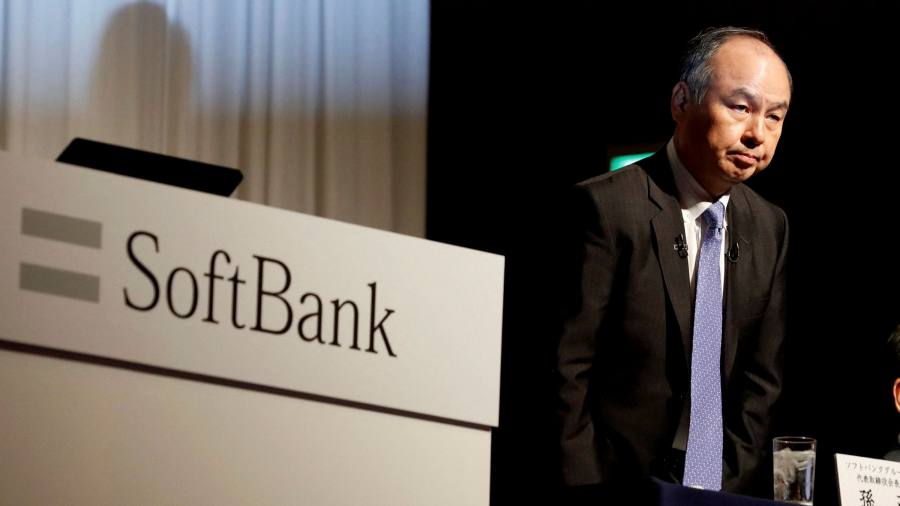SoftBank founder Masayoshi Son said the Nasdaq remained his “favorite” venue for the planned listing of Arm despite an intensive UK lobbying campaign for a London share offering of the British chip designer.
The Financial Times reported This week that the UK government has debated the use of national security legislation to compel SoftBank to list Arm in London, as the world’s largest tech investor reconsiders holding an initial public offering for the company exclusively in the US.
“Nasdaq is the favorite,” Son told the annual meeting of SoftBank shareholders in Tokyo when asked where he planned to list Arm. The comments were his first public remarks on the issue since the UK campaign started in February.
He added that most of the chip designer’s customers were in Silicon Valley and that “stock markets in the US would also love to have Arm”.
But the 64-year-old billionaire acknowledged that the group had “received a strong love call” from London and was consulting with experts on what would be in Arm‘s best interest and where regulations would be most favorable. Son said nothing had been decided.
Prime Minister Boris Johnson has sent a letter to SoftBank executives while Lord Gerry Grimstone, Britain’s investment minister, has met the group’s executives to lobby for the listing.
Shoring up Arm’s image as a UK success story has become a highly sensitive political issue after criticism that Britain was no longer an appealing place for globally important firms.
SoftBank purchased Arm in 2016 for $32bn. The Cambridge-based company was listed in Britain at the time, with a secondary listing in the US. A planned sale to California-based Nvidia collapsed this year over regulatory concerns, pushing Son to reconsider a public listing.
A successful offering at a targeted valuation of at least $50bn would be important to boost SoftBank’s finances after its Vision Fund reported a historic annual investment loss of ¥3.5tn ($27bn) last month. Its portfolio companies were hit by a regulatory crackdown in China and a sell-off in technology shares.
Reflecting these pressures, rating agency Moody’s has cut SoftBank’s credit outlook from “stable” to “negative”, citing a drop in the value of its portfolio and estimating that SoftBank’s leverage has increased.
Moody’s said the collapse of Arm’s sale to Nvidia “showcases the challenges around quickly realising full value for such stakes”. It added that SoftBank’s plans to list Arm “face execution risk in the timing and valuation”.
SoftBank said Moody’s assessment was “based on their subjective assumptions and hypothesis with a no reasonable basis for support”.
In contrast to a sombre earnings presentation in May, during which Son outlined a shift to a more defensive posture, on Friday the SoftBank chair sought to project confidence.
“I have never, since the start of my company, been in doubt even for one day that the information revolution will come,” said Son.
To illustrate the point, he presented slides showing SoftBank’s growth mirroring the rise in internet traffic over the years and predicted that the trend would continue.
“I believe in the vision of future progress and that’s what I invest in . . . it will come for sure,” Son said.
SoftBank shares have fallen by around a third since last year’s annual meeting, but Son urged shareholders to take the long view:
“Peaches and chestnuts take three years and persimmons take eight years, even fruit takes that long,” he said, quoting a Japanese proverb. “I’m confident if you wait five to 10 years there will be something delicious.”

